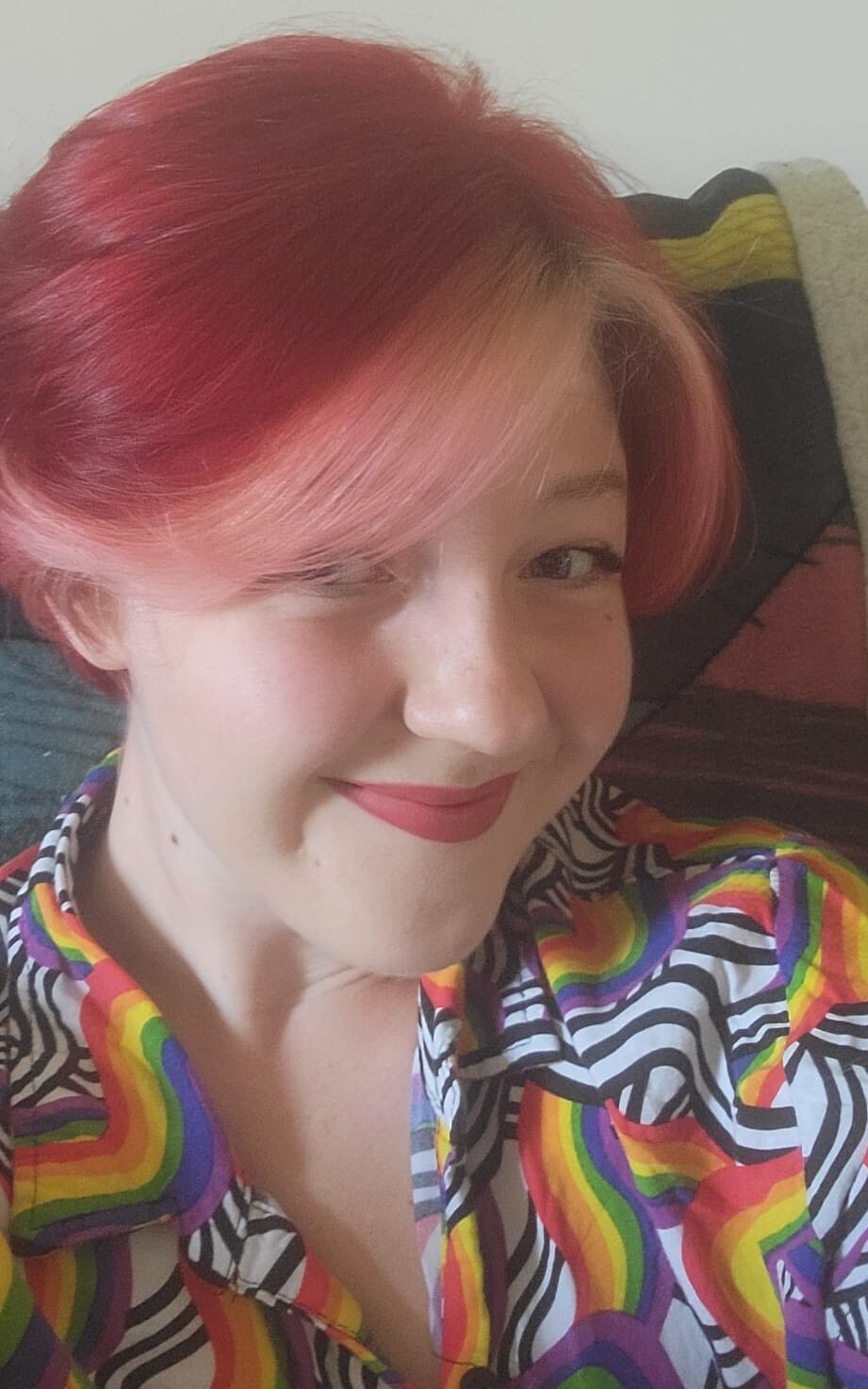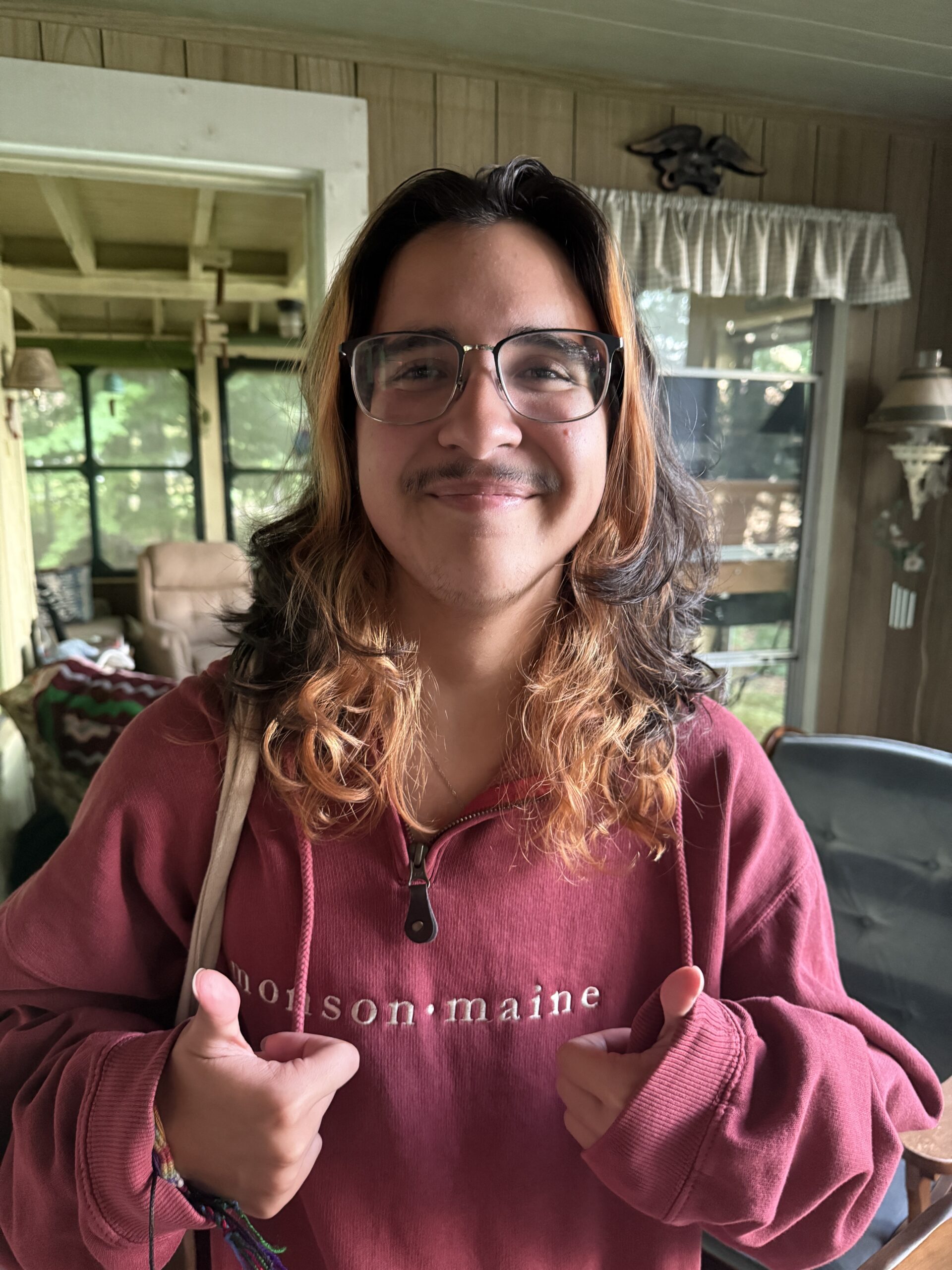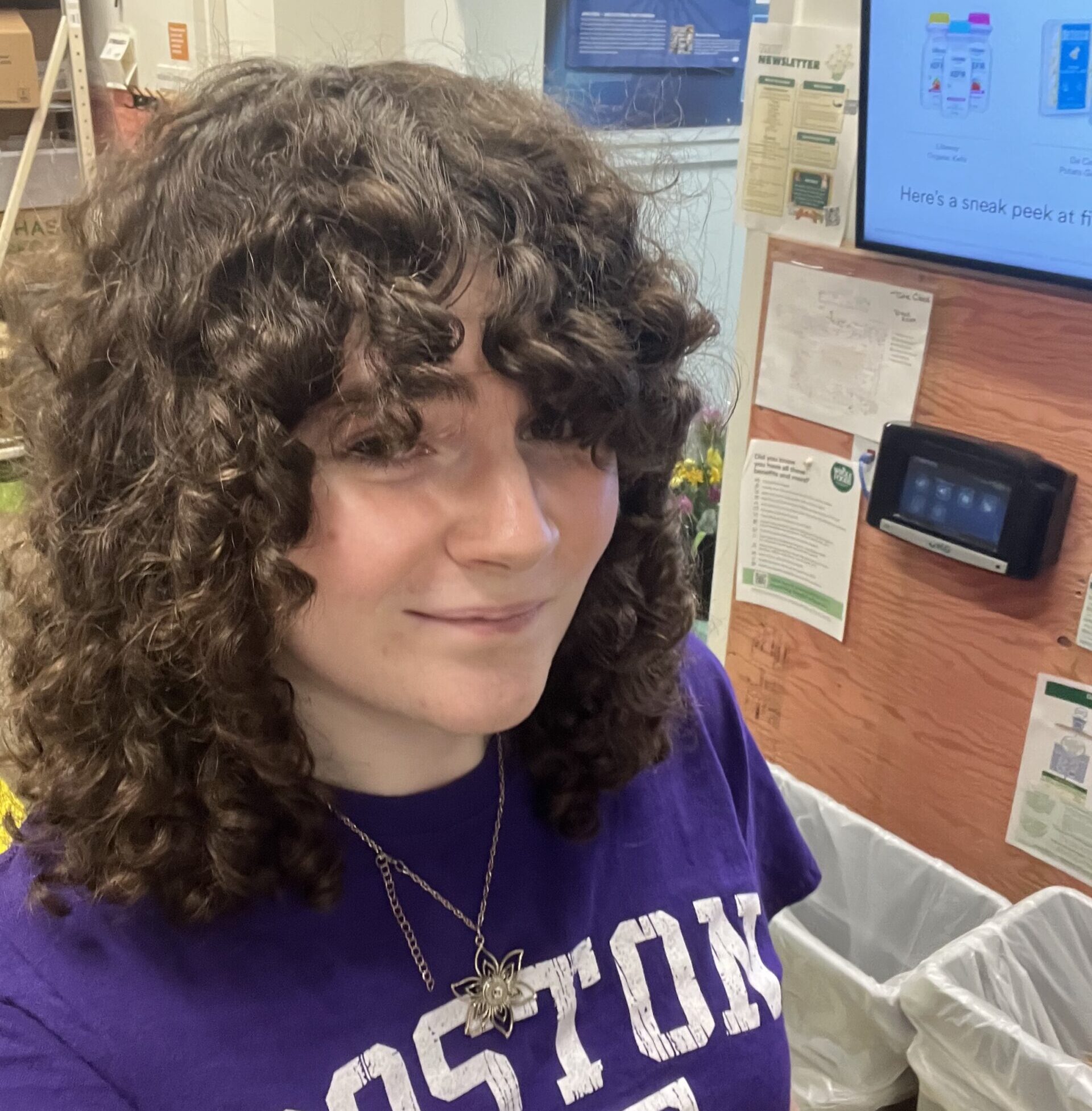Young, Queer Love: How Different Is It?
LGBTQ+ GenZers share their perspectives on dating today
By Dawn Ennis / Photos courtesy of Dawn Ennis
Think back to your first crush. How old were you when you went on your first date? Do you remember their name? How about that first time someone broke your heart?
Recall what all that was like—trying to find love before the Internet, before cellphone apps—as we meet three queer teens, who compare their GenZ experiences to “the old days,” when making a mixtape was all the rage.
Ruby

“I love that I met my boyfriend in person, in the way that anyone might,” Ruby, 19, told CT Voice. She’s bisexual, calls Massachusetts home and is a sophomore studying publishing at Emerson College in Boston. Ruby said when she was 12, she at first considered herself a straight ally.
“I didn’t realize that bisexuality was a thing,” she said. “So, I had thought my whole life, ‘I also like girls, but I also like guys, so, I’m probably just straight.’” That’s when she started attending GSA meetings with a seventh-grade classmate who came out as bisexual.
“That checked out,” said Ruby. “And from then on, that’s what I’ve identified as.” She said she was surprised to learn that a Gallup survey earlier this year revealed bisexuals are the largest single group within the LGBTQ+ community, with more than half of the respondents saying that they were bi.
Ruby met her boyfriend through her friend group at college, and they’ve been dating since April. “He’s also bisexual,” she said. “We consider ourselves to be in a very queer relationship, even though technically it’s a guy and a girl.”
To Ruby, the relationship dynamic in her queer circle of college friends goes beyond male and female. “The fact is that gender is so removed from it; people are gay, and people are bisexual and people have various gender identities,” she said. Yet that doesn’t make dating any easier.
“For a lot of people in my generation, it’s so much harder to meet in person and have relationships that start organically,” she said. “It’s hard, being queer, depending on what kind of a space you’re in. Because if you’re queer at Emerson College, you’re going to meet people who are compatible with you. But if you’re queer somewhere else, it’s a lot harder.”
Over the summer, Ruby invited two friends from school, Andy and Leif, to accompany her on a road trip, to meet young people like themselves whose lives were, as she said, harder.
“I have friends—you know, queer friends—in central Maine, a very rural part of Maine, where my family’s from,” she said. “They have a very different experience of it because it’s a lot harder for them compared to us.”
How so? “Oh, it’s just so different,” said Ruby, comparing these rural folks to how Baby Boomers, millennials and GenX adopted swiping on apps in hopes of making a love connection.
“I think it would be so difficult for me to try to figure out if I was attracted to someone based on evaluating them through a profile,” she said. “I need to see more than what you’ve curated. And even like things that you can put on your profile, like, you write a description of yourself that’s specifically designed to make people want to date you, as opposed to when I meet people in person and it’s just the whole person in front of me. And I get to figure out if I want to date them.”
Andy

Andy, 19, also eschews dating apps, viewing them as eliminating an important step in connecting with another person.
“You meet somebody with the intention of dating them, not with the intention of getting to know them first, and then dating them,” he said. Like Ruby, Andy is queer and a sophomore at Emerson. He’s studying sound design and engineering, and he made it clear he is not cisgender.
“I am queer and transmasc,” Andy told CT Voice. “I identified as a lesbian from 12 to 13.”
“I knew I wasn’t comfortable with my body, and I knew I had gender dysmorphia,” he said, “but I hadn’t really considered gender in that equation until maybe I was 13, 14 or 15, during quarantine.” Andy explained he tried to find his identity by exploring the labels of bisexuality and nonbinary.
“And eventually,” he said, “I kind of just ended up saying, ‘Screw it. I’m queer! I like who I like. It doesn’t really matter.’” He started on testosterone at 16 and had top surgery at 18. He says he’s very happy with his transition and romantic life.
“I can’t say I have a definable type,” said Andy. “Bodies don’t matter to me. It’s the person inside that really matters. People who are kind and honest, that’s kind of like what I’m attracted to. Androgynous and or masculine-leaning people are typically what I go for, what I’m attracted to.”
Andy said he’s already been involved in two serious relationships: one when he was 15, and his current relationship with a classmate he met on his second day of freshman year, who identifies as nonbinary and pansexual. They dated long distance over summer break but are now going on ten months as a couple, and Andy said he considers this a long-term relationship.
However, Andy’s first one, he said, was “certainly a wild ride,” because he was dating a 17-year-old trans man.
“I was love bombed,” said Andy. That phrase actually dates back to the 1970’s! It’s a manipulative behavior and tactic used by narcissists, abusers, and toxic individuals, characterized by wooing someone with excessive affection, attention, and flattery, particularly at the start of a relationship. And it escalated quickly, he said.
“I got proposed to in a public setting,” he said. “I was in a very public setting. I said, ‘Yes,’ because I didn’t know what else to say. And I felt pressured to do so.”
But instead of marrying Andy, that trans man soon left for college, and ghosted Andy, for seven months.
Andy felt abused and neglected. And yet… “Queer love has been, to me and in my relationships, fulfilling, in a way,” he said. “I’ve learned a lot.”
“I’m a big proponent of loving as hard as you can, as much as you can, all the time, because anything could happen at any point, any time of day,” he said, calling it a “no regrets scenario.”
“Say the thing you want to say; love who you want to love,” he said. “I feel like that’s really important, especially now, especially when loving who you want is becoming more and more difficult by the day. And I feel like it’s really important that people continue to do that, even though it may be difficult.”
Leif

“I have always been a passionate believer in love,” Leif told CT Voice, “and I think I will, until love fails me and I die.”
That may sound overly dramatic for someone who’s only 18, but Leif said she has already been in six relationships, all “sexual in some way.” Leif is a trans woman who describes herself as a bicurious lesbian.
She was single at the time of her trip to Maine with Andy and Ruby. Like her friends, she is a sophomore at Emerson, studying sound and a native of Greater Hartford.
For her generation, she said dating today is very dissimilar to how her parents courted in the 1980s and 90s.
“Very different. And I think in a bad way,” said Leif, and to prove her point, she recounted the experience of a college friend. “She had completely given up on love and romance because everything now feels extremely artificial. It’s all rushed; it’s all burning out the candle before you lose it. It goes too fast. You completely waste it, and it’s entirely focused on nothing but sex, or nothing but feeling something, nothing but appearances.”
Leif said she considered the cliché, “love conquers all,” as telling “only half of the story.”
“I think that is not an accurate description. I think that love on its own will not be enough unless we all learn to love, unless we actually put some work into it,” said Leif. “I think we can’t just love and hope and pretend like everything will be okay.” These are words to live by.
Advice From an Expert
Sexual Health Educator and CT Voice columnist Kim Adamski said she understands why queer GenZ has spurned dating apps. “Because people are becoming really disillusioned by the Internet and how hateful it can be and how misleading it can be, and also how it’s all ads, like…eww,” she said. “That’s also happening in part because there’s so many people who are bots or just trying to redirect you to their OnlyFans,” a subscription-based content channel.
Adamski works with the nonprofit organization Q Plus in assisting LGBTQ+ Connecticut youth, and recommends kids from 9 to 13, teens from 13 to 18, and young adults up to 24 check out their programs and join a social support circle.
As for dating, “Get to know people before dating them,” she said. “If you have the foundation for healthy friendships and family relationships, then you will be able to have healthy romantic relationships later.”









More Stories
A Leader in Care for LGBTQ+ Communities: Meet Kenneth Abriola, MD
Transforming Sexuality: Handling Sexual Changes for Trans Folks
MHC’s “Let’s Face It” Program Expands Mental Health Awareness